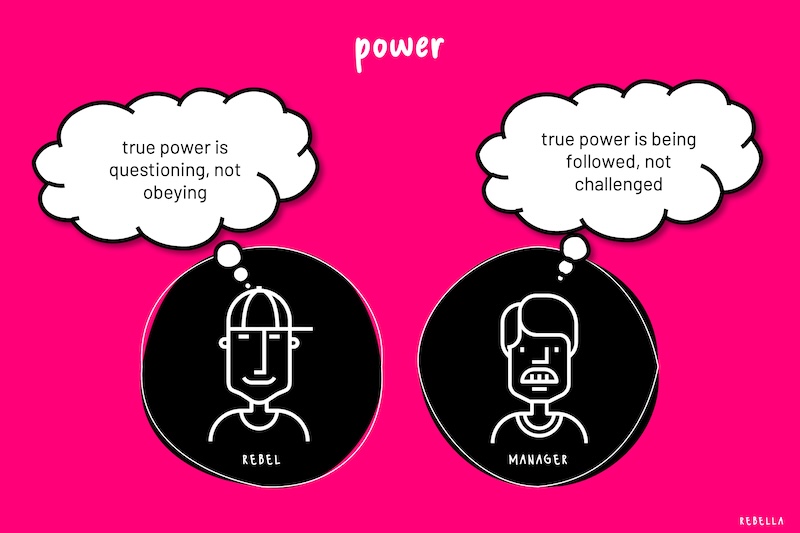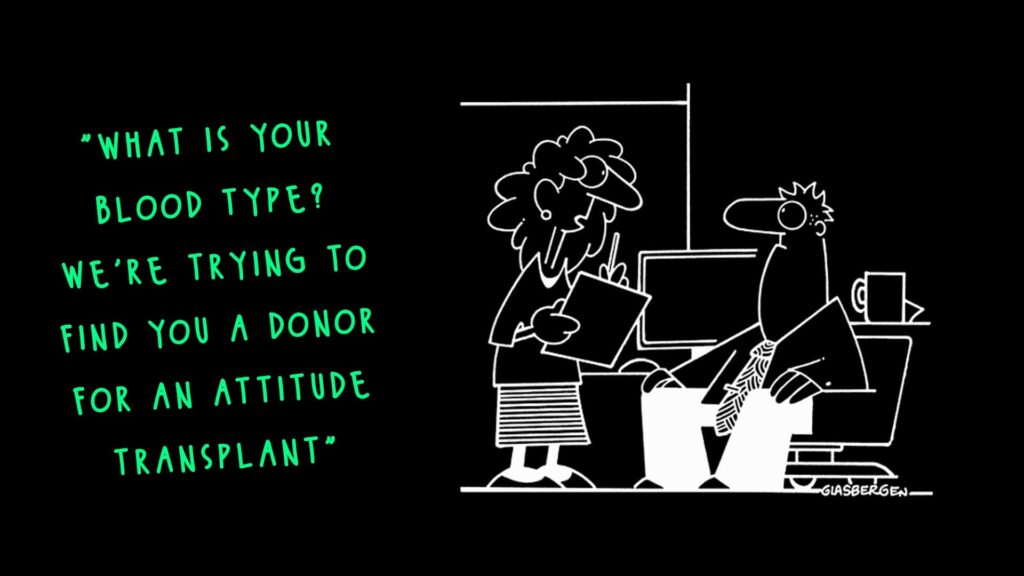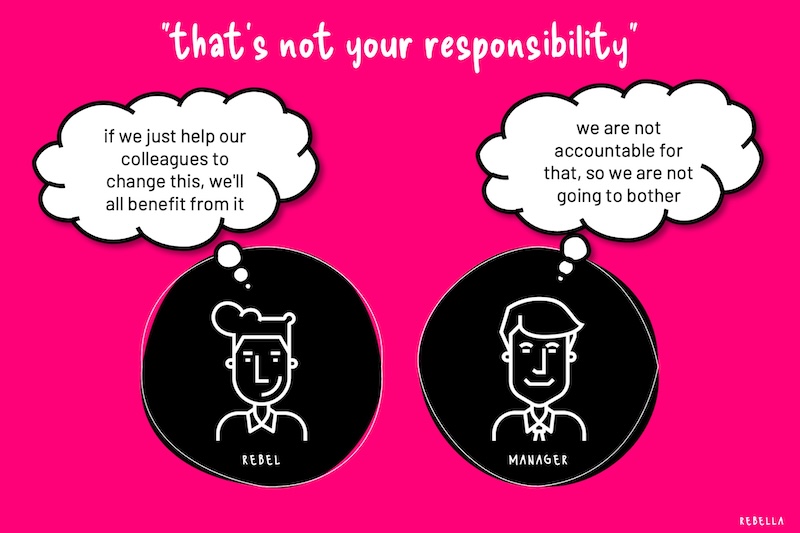
Dr Rebel: Are rebels disruptive? Maybe. Are they powerful? Definitely!
Today’s question: Why are rebels often informal leaders?
Rebels are the people who challenge the status quo, question authority, and bend rules (or sometimes break them). This is why managers struggle with them in their teams. However, rebels often manage to inspire their colleagues and gain their followership. They spark change, intentionally or not.
What makes rebels informal leaders?
Rebels step up when the system fails, and when leaders are too slow, strict, or out of touch. People follow them because they speak up and take action when others stay quiet. They’re brave and honest, which earns respect, especially where truth is rare.
Instead of following the usual rules, rebels build trust in informal ways through chats, friendships, and quiet networks. They often have special knowledge or broad experience that makes them valuable. And while they may seem disruptive, most rebels care deeply. They just have their own way of showing it.
Embrace it …
Managers who support rebels can unlock big benefits. Rebels often notice what’s not working and want to fix it fast. If given some freedom, they can drive change more quickly than most teams. They also tend to speak up about problems others might ignore, helping leaders see issues with rules, culture, or team dynamics.
If a rebel has influence, they’re likely connected to people who feel left out. By working with them, they can help re-engage those voices. Supporting rebels also builds stronger teams by encouraging open and fearless conversations. And while rebels might not seem like typical leaders, with the right support, many can grow into top performers or even future leaders.
… or lose it
On the other hand, shutting down rebels doesn’t make them go away. It just pushes their resistance underground, where it can quietly spread and create a hidden, unhealthy culture. By silencing them, you also lose early warnings about deeper problems, since rebels are often the first to notice when something’s wrong.
If they feel ignored or dismissed, they’re likely to leave, often taking talented teammates (and sometimes even loyal customers) with them. When others see this happen, it creates a culture of fear where people stop speaking up and simply follow orders. Over time, without open challenge or new ideas, the organisation can become stuck and stop growing.
How to recognise an informal leader
Rebels are often systems thinkers in disguise. They appear chaotic, but many understand exactly how the system works and where it doesn’t. That’s why they know how to break it effectively.
Here are 7 ways to spot an informal (rebellious) leader:
- They know everyone, and everyone knows them
- They are often the first to cheer or push back on new initiatives
- People listen when they speak, even if it’s sarcastic
- They are not always in meetings, but somehow know everything
- They get consulted by peers before decisions are made
- They attract respect even without titles
- They seem to have more influence over team morale than official leaders
Rebels don’t need taming; they need trust
To work with rebels, you don’t need to “tame” them; you need to engage, respect, and partner with them. Provide guardrails, not cages. Invite their insight without demanding obedience. Because if you don’t… they’ll either become your greatest obstacle, or someone else’s greatest asset.

do you have a burning question for dr rebel?


